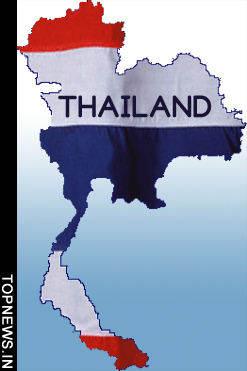Thai authorities deny Hmong refugee was beaten
 Bangkok - The Thai Foreign Affairs Ministry on Monday denied that a Hmong refugee was severely beaten over the weekend in a camp controlled by the Thai military as part of its efforts to forcefully repatriate 5,400 members of the ethnic minority to communist Laos.
Bangkok - The Thai Foreign Affairs Ministry on Monday denied that a Hmong refugee was severely beaten over the weekend in a camp controlled by the Thai military as part of its efforts to forcefully repatriate 5,400 members of the ethnic minority to communist Laos.
Authorities detained Joua Va Yang, who had guided a BBC team to Laos to document the plight of the Hmong in 2004, on Saturday night in Huay Nam Khao refugee camp in Phetchabun province, the ministry's deputy spokesman Thani Thongpakdi confirmed.
But Thani denied reports that Yang had been beaten by the military at the camp, located 250 kilometres north of Bangkok.
"According to the preliminary information we've received, Yang and his family were trying to escape and were apprehended," Thani said. "He was not manhandled and has been kept in detention for further questioning."
Joe Davy of the Chicago-based Hmong Advocacy Group cited witnesses from the camp as saying Yang was severely beaten and had to receive medical treatment.
"They approached him to 'voluntarily' return to Laos, but he refused due to a well-founded fear of persecution," Day said in a statement.
"Due to his refusal to cooperate, he was severely beaten in front of his wife and children then taken to the camp jail," Davy said. "He was later taken to the district hospital to get his head sutured from wounds he received then taken back to the camp jail."
Yang led a team of BBC journalists into the jungles of Laos five years ago to document the persecution of the Hmong, who claim to be hunted by the Lao military because of their past association with the United States' "secret war" in the South-East Asian country.
Hundreds of thousands of ethnic Hmong fled Laos after the country went communist in 1975, and the exodus continues today although resettlement in third countries has largely dried up, leaving many Hmong stranded in Thai camps, such as Huay Nam Khao.
On Wednesday, Thailand agreed with the Lao government to repatriate the 5,400 ethnic Hmong living in Huay Nam Khao since 2004 to neighbouring Laos within the year.
Thai Foreign Minister Kasit Piromya said Thailand would pay 1.5 million baht (42,860 dollars) to the Lao government to help finance buildings at a village outside the Lao capital, Vientiane, to receive the repatriated Hmong, the government-run Thai News Agency reported.
For those unwilling to participate in the repatriation programme voluntarily, Kasit claimed the Thai Foreign Affairs Ministry planned to contact third countries - including Australia, Canada, New Zealand and the United States - to consider accepting the Hmong for resettlement.
"While the Thai foreign minister has given public assurances to the international community that repatriation of the Lao Hmong shall take place on a voluntary basis, the Thai military seems to have its own ideas on how to deal with the situation," Davy said.
Past efforts to repatriate the Hmong, who formed the main anti-communist guerrilla force in the US military's secret war in Laos in the 1960s and '70s, have met with resistance and raised concerns of human rights abuses.
Earlier this month, the Thai military blocked food supplies to Ban Huay Nam Khao in an apparent effort to force its residents, who it called illegal immigrants, to return to Laos.
Camp residents claimed Thai authorities have been using new tactics to persuade the Hmong to return, such as making frequent arrests for minor offences, such as gambling.
Since November, about 200 Hmong have voluntarily returned to Laos from the camp each month, aid workers said. Thailand identifies the camp residents as illegal migrants, refusing to acknowledge them as refugees despite their claims of political persecution in Laos. (dpa)